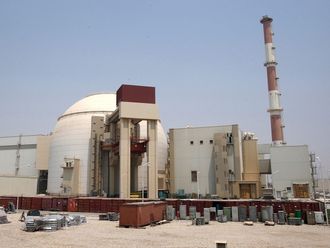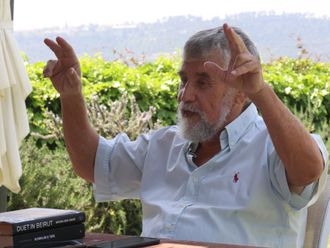Beirut: Free Patriotic Movement (FPM) chief and Minister of Foreign Affairs Gibran Bassil introduced the 75th version of a new electoral law that, to say the least, appeased some and upset others.
In this latest confabulation, Bassil called for electing 64 deputies (out of 128) according to a proportional representation system in five electorates, while the remaining 64 are to be chosen by their respective sects under a winner-takes-all system, in 14 specific electorates.
There were few takers as Hezbollah, for example, insisted on a full proportional representation, while the Future Movement and the Progressive Socialist Party (PSP) simply said no because, they argued, Hezbollah’s weapons effectively prevented serious competition in its strongholds.
Remarkably, Bassil added fuel to the fire when he suggested that the time was ripe to establish a Senate — as anticipated by the 1989 Ta’if Accords that ended the 1975-1990 Civil War — though his recommendation that it be chaired by a non-Maronite Christian was explosive, and unanimously rejected by most officials and commentators.
Ta’if envisaged the Senate leadership to be allotted to the Druze community to balance the country’s sectarian composition in power, but Bassil’s latest provocation was directly linked to the upcoming parliamentary elections, precisely to deny the Druze a say in electing several Christian parliamentarians in the Chouf and Aley districts.
Reaction against Bassil was swift and overwhelming, as the State Minister for Human Rights, Ayman Shuqair (PSP), declared that the move was sectarian, while the Minister of Interior, Nouhad Al Mashnouq (Future) said the Movement was not ready to endorse such a suggestion.
The PSP head, deputy Walid Jumblatt, warned that Bassil’s latest electoral proposal aimed to “marginalise” the minority Druze community, which he insisted was unacceptable. Local newspapers quoted an unnamed PSP official saying: “It does not lead to correct and fair representation and it rather meets the FPM’s ambitions, or specifically Bassil’s personal ambitions.”
Opinion page writers in several local dailies lamented Bassil’s latest initiative, and expected it to join the previous 74 proposals advanced by various groups, which confirmed that Lebanese elites were nowhere near an accord to hold the upcoming May 2017 parliamentary elections under a new law.












